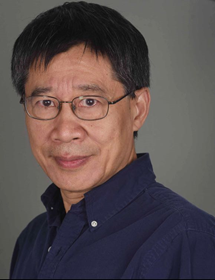
搜索网站、位置和人员

新闻与活动 活动信息
西湖名师论坛第五十四期 | Anning Lin: IKK Signaling Network: Novel Mechanism in Alzheimer’s Disease and Hepatocarcinogenesis
时间
2019年10月10日(周四)
下午15:30-17:00
地点
西湖大学云栖校区5号楼一楼学术报告厅
主持
西湖大学生命科学学院讲席教授 施一公
受众
全体师生
分类
学术与研究
西湖名师论坛第五十四期 | Anning Lin: IKK Signaling Network: Novel Mechanism in Alzheimer’s Disease and Hepatocarcinogenesis
时间:2019年10月10日(周四)下午15:30-17:00
Time:3:30-5:00 PM, Thursday, Oct 10, 2019
地点:西湖大学云栖校区5号楼一楼学术报告厅
Venue:Lecture Hall, 1F, Building 5, Yunqi Campus
主持人:西湖大学生命科学学院讲席教授 施一公
Host:Yigong Shi, Chair Professor of School of Life Sciences, Westlake University

主讲人/Speaker:Dr. Anning Lin, Professor at Ben May Department for Cancer Research, University of Chicago
Anning Lin is trained in Medicine in Xuzhou Medical University, Biochemistry in Nanjing University and Pharmacology at University of Alabama at Birmingham. He completed his postdoctoral training in Signal Transduction at University of California, San Diego. He is a Professor at Ben May Department for Cancer Research in University of Chicago. He was the Director of Shanghai Institute for Biochemistry and Cell Biology, CAS from 2009–20014. He serves on several editorial boards, including MCB and Cell Research, and is the book Editor of “The JNK Signaling Pathway”. A number of his trainees have become faculty in research universities/institutes in United States, China and Japan.
The research focus of his laboratory is signaling transduction. His laboratory has systemically elucidated the signaling mechanism underlying TNFa-induced apoptosis. The recent direction of the laboratory is to understand the signaling mechanism in human diseases, including septic shock, colitis-associated cancer (CAC), hepatocarcinogenesis (HCC) and Alzheimer’s disease.
讲座摘要/Abstract:
After decades of intensive research, a blueprint of cell signaling network that controls fundamental cellular activities is emerging. The challenge is how to use the wealth knowledge of signal transduction for prevention and treatment of human disease.
In the first part of this talk, I will briefly discuss a recently identified non-canonical TNFa-induced apoptosis pathway, which answers a long-sought question about how TNFa can induce apoptosis-associated tissue and organ damage despite concurrent activation of the IKK-NF-kB pathway in disease.
In the second part of the talk, I will first discuss the role of the pro-apoptotic BCL-2 family protein BAD in Alzheimer’s disease. Despite intensive studies, the genetic link between programmed cell death and memory deficits and neuropathology in Alzheimer’s disease is not known. We found that BAD mediates neuronal apoptosis and promotes activation of NLRP3 inflammasome in microglia, thereby contributing to pathology and cognitive deficits in Alzheimer’s disease.
Then, I will discuss the role of hepatocyte NF-kB in chemical and HBV-induced HCC. The current paradigm is hepatocyte NF-kB has anti-tumor function in chemical HCC animal models and in 30-40% human HCC. Paradoxically, hepatocyte NF-kB is typically activated in chemical HCC and in a large percentage of human HCC. The underlying mechanism and clinic implication are not known. We found that hepatocyte NF-kB also has tumor-promoting function, which is limited by the transcriptional factor Miz1 in a transcription-independent manner, in chemical HCC. More importantly, Miz1 expression is inversely correlated with activation of hepatocyte NF-kB and poor prognosis in HCC patient specimens, suggesting that Miz1 is a prognosis indicator and a potential therapeutic target for NF-kB positive chemical and HBV-induced HCC.
讲座联系人/Contact:
科技合作部 沈老师
shenxiaolian@westlake.edu.cn

















